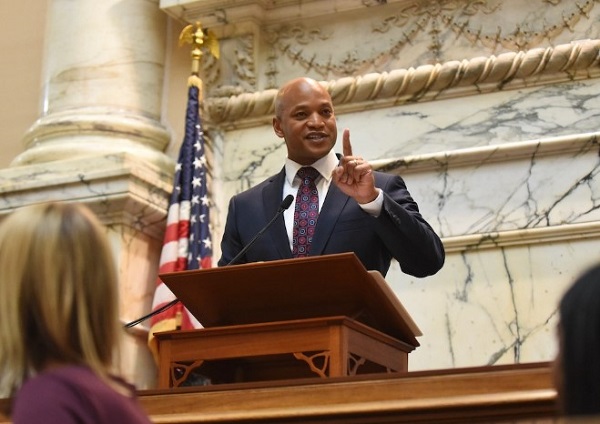Do you value local journalism? Support NottinghamMD.com today.
ANNAPOLIS, MD—This week, Governor Wes Moore announced his supplemental FY 2024 budget plan, which includes key adjustments to his first proposed budget to account for new revenue projections. The governor’s supplemental budget targets crucial investments toward rebuilding Maryland state government, bolstering public safety, ending child poverty, creating a competitive and equitable economy, and rebuilding our infrastructure.
“This administration will always be guided by the data and the facts. Our supplemental budget adapts to new revenue projections while ensuring we invest in the priorities that matter most to Marylanders,” said Governor Moore. “We’ve made it clear–our administration is here to make the lives of every Marylander better, and this budget plan meets that test in a responsible and strategic way.”
“Today’s supplemental budget is reflective of the close collaboration between the Senate and the Moore Administration,” said Senate President Bill Ferguson. “The Senate is focused on finalizing a financially prudent budget that reflects investments in Maryland values over the next fiscal year. We balance the State’s immediate needs with savings for the future. I want to thank the Governor, Budget Secretary, and his staff for their commitment to a coordinated approach that supports all Marylanders.”
“This supplemental budget reflects the Moore administration’s commitment to shoring up our agencies and state government after years of neglect,” said House Appropriations Chair Ben Barnes.
In crafting its initial budget, the Moore-Miller Administration prepared for the possibility of economic headwinds to allow flexibility while remaining strategic. The administration’s original proposed budget featured a robust $820 million General Fund balance, of which $377 million was structural–designed in large measure to provide extra breathing room in the event of a downturn in revenues.
On March 2, the Board of Revenue Estimates issued a $477 million write down, bringing the projected FY 2024 General Fund balance to just under $350 million on a total cash basis, necessitating a restructuring of the administration’s initial proposed budget. After conducting a thorough and deliberate review of spending goals in collaboration with leaders in the Maryland General Assembly, the Moore-Miller Administration has crafted a proposed supplemental budget that meets the moment and delivers for Maryland.
The budget plan highlights include:
- Nearly $35 million for additional negotiated salary increases for a significant portion of the State executive branch workforce, targeted to those employees who have had the lowest salary increases in recent years to improve retention of employees who have more than 5 years of experience;
- Increased funding for the offices of the Comptroller and the Treasurer to help them meet their constitutional responsibilities;
- $66 million to tackle challenges across State agencies inherited from previous administrations, including issues at Charlotte Hall Veterans Home, multi-million dollar settlements involving the Department of Public Safety and Correctional Services, and budget shortfalls for higher education scholarship programs, the Criminal Injuries Compensation Board, and several other agencies and projects;
- $2.25 million to advance the administration’s goal to end child poverty in Maryland by funding free breakfasts for public school students, pending passage of HB514/SB559;
- $1 million to cover the costs associated with burials for veterans’ spouses and dependents, pending passage of SB286;
- $2 million for the planning and design of a pre-release facility focused on women within the correctional system;
- $25 million in additional paygo capital for the Rental Housing Works program within the Department of Housing and Community Development, to provide much-needed affordable rental housing for Maryland’s hardworking families, tackle childhood poverty, and build a more equitable economy in Maryland;
- $2.5 million to support the behavioral health strategy designed by Secretary of Health Laura Herrera Scott and her team, which will deploy $107.5 million toward building out behavioral health services for Marylanders to stem the mental health crisis that impacts so many Maryland families today;
- $11 million for the Maryland Coordination and Analysis Center (MCAC) within the Maryland State Police to expand staffing, conduct trainings, and invest in technology infrastructure to keep Maryland safe from violent crime, cyber attacks, and other threats; and
- $32 million in capital grants for 32 local nonprofit organizations whose funding proposals align with the mission of State government, leverage other resources, and lift up our communities, including communities that have been historically overlooked and under-resourced.
In addition to the highlights listed above, the Moore-Miller Administration has worked closely with the Maryland General Assembly to fund a number of shared priorities reflected in the legislature’s changes to the budget so far. These include capital grants for critical projects prioritized by our county governments, the shoring up of funding for the state’s emergency medical system and trauma centers, and funding for a new facility for the University of Maryland Medical System’s Shore Regional Hospital that will modernize healthcare delivery for the mid-shore region.


